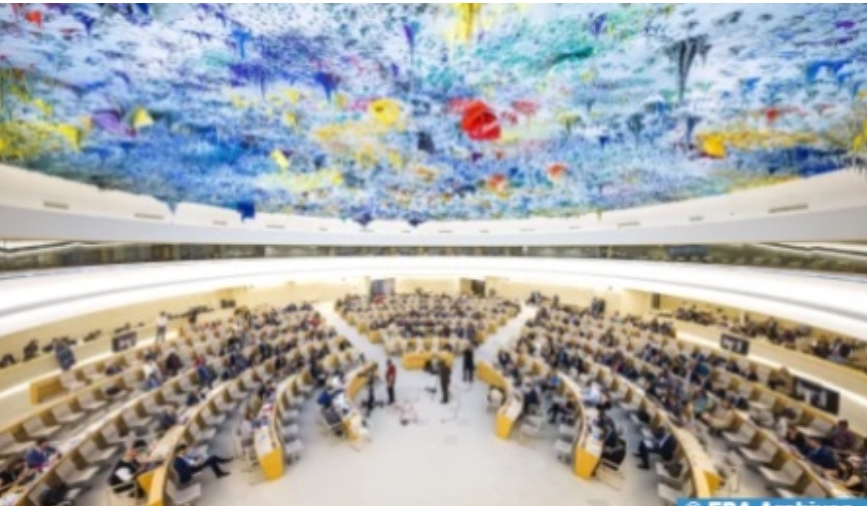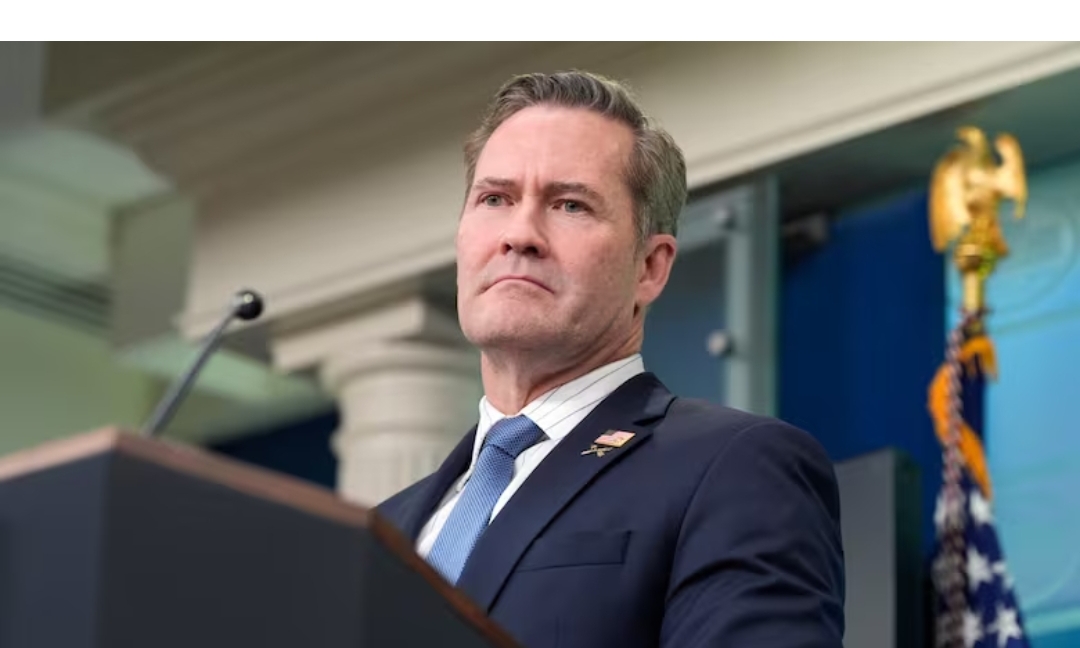Assahafa.com
Demographers, sociologists and your mother-in-law want to know: why aren’t people having as many kids?
Canada recorded its lowest-ever fertility rate for the second year in a row in 2023, according to Statistics Canada, at 1.26 children born per woman. It now joins the ranks of “lowest-low” fertility countries, including South Korea, Spain, Italy and Japan.
Statistics Canada said the drop between 2022 and 2023 specifically reflects an increase in the number of women of childbearing age, but also noted the fertility rate has been steadily declining for more than 15 years.
Canada records its lowest fertility rate for 2nd year: StatsCan
Experts have linked a range of factors with reproductive decision-making, including the rising cost of living and eco-anxiety.
More people are also delaying parenthood until later in life, which can shorten their reproductive window.
This Sunday, Cross Country Checkup is asking: Which parenting issue is causing the most debate in your family? How did your upbringing impact the way you parent today? Fill out this form and you could appear on the Oct. 6 show or have your comment read on air.
But there’s also a significant cultural aspect — larger families with multiple children are simply no longer the ideal like they were a few generations ago, said Lisa Strohschein, a sociology professor at the University of Alberta and the editor-in-chief of the journal Canadian Studies in Population.
We’ve shifted from a society that had children to help ensure the survival of the household, to one where people choose to become parents out of a desire for personal fulfilment. And “you don’t need lots and lots of kids to derive meaning out of life,” Strohschein said.
That’s reflected in a number of parenting platforms dedicated to those raising only children, like the “One and Done” subreddit with 72,000 members, or the 21,500 videos posted with the #OneAndDone hashtag on TikTok.
There are also influencers like Jen Dalton of Sudbury, Ont., whose @oneanddoneparenting account on Instagram has 55,500 followers.
“No longer do sleepless nights and postpartum anxiety and depression plague me. I do have time to focus on myself, while also focusing on my daughter and my marriage,” Dalton wrote in a post in May.
“We have a beautiful balance in our lives.”
A public health advisory says today’s parents face unique challenges that can impact their mental health. Some parents from older generations say raising children has always been, and always will be, a struggle. Can we really say which generation has had it the worst?
‘They just don’t want to’
The recognition that having children is increasingly costly, time-consuming and stressful was reflected in a recent public health advisory issued by the U.S. surgeon general. In August, Vivek Murthy warned about the impact of modern stresses on parents’ mental health, saying today’s parents face unique challenges.
Just Asking wants to know: What questions do you have about fertility treatments? Fill out the details on this form and send us your questions ahead of our show on Oct. 5.
“Parents across all backgrounds want to provide their kids with a foundation for happiness and success. Yet too many fear they won’t be able to provide what’s necessary or their kids won’t be able to access what they need in order to lead a fulfilling life,” Murthy said in the report.
Modern parenting is so stressful that the U.S. issued a health advisory. Parents say it’s overdue
Parents are utterly exhausted. Has kid sleep always been this bad?
On top of that, some experts have argued that parenting has become more intense. Data shows parents today spend more time with their children than in previous generations (even while more women are working full-time), and the predominant modern parenting style centres on acknowledging a child’s feelings — which has left many parents feeling burned out.
And for some, that’s just not appealing — at all. For instance, the share of U.S. adults younger than 50 without children who say they are unlikely to ever have them rose from 37 per cent in 2018 to 47 per cent in 2023, according to a Pew Research survey of 8,638 respondents published in August.
The most common reason those adults gave, at 57 per cent? “They just don’t want to,” research analyst Kiley Hurst wrote in the report.
In Canada, one-third of adults aged 15 to 59 in 2022 said they didn’t intend to have any children, according to Statistics Canada. The agency noted that younger respondents were more likely to desire fewer children, and suggested this could be due to “variations in financial security.”
Research suggests a significant shift over the last two decades in the number of North American adults who are planning on having kids. Andrew Chang explores three main reasons for the generational change.
Broadly, it comes down to economics and culture, said Rania Tfaily, an associate professor in the department of sociology and anthropology at Carleton University who studies social demography.
Historically, getting married and having children were defining markers of adulthood, Tfaily explained. But these markers have been increasingly replaced with those related to independence, economic stability and pursuing individual interests.
“Having children requires considerable time commitment and investment to ensure their well-being,” Tfaily said. “Given this and the increasing cost of having children, many are choosing to have one or two children only, or none at all.”
One-child families on the rise
According to the 2021 census, one-child families are the most common type in Canada, comprising 45 per cent of families with children that year. (Families with two children made up 38 per cent and those with three or more made up 16 per cent.) The totals include one-parent families, common-law families and step-families.
Economists have pointed out that the decision to have children is often a trade-off between quantity and quality — the number of children you have and how much you invest in their future prospects and wellbeing. The theory is that everyone only has a finite amount of time, money and affection; in the past, people would spread that out thinner between more children, Strohschein said, but in recent years, that calculation has flipped.
For instance, in 2022, the International Monetary Fund (IMF) pointed out that typically, as parents get richer, they invest more in the “quality” (like education and extra-curricular activities) of their children, which is costly. Additionally, the IMF notes “how time-consuming it is to raise children,” and that devoting time to childcare is also costly — especially for mothers who could otherwise earn more in the workforce. So, for these reasons, they have fewer children.
Families are also shrinking worldwide, according to a kinship study published in December in the Proceedings of the National Academy of Sciences USA. That study, using international demographic data for every country in the world, projected that by 2095, a 65-year-old person could have 38 per cent fewer living relatives than they did in 1950. (They determined this using data modelling based on a hypothetical 65-year-old from the population.)
Over time, this could mean more “vertical” family networks — grandparents, parents, children — and fewer “lateral kin” such as cousins, aunts and uncles, lead author Diego Alburez-Gutierrez told CBC News in an email interview.
Cousins are disappearing. Is this reshaping the experience of childhood?
There’s also a growing polarization in fertility behaviour, said Alburez-Gutierrez, who leads the Research Group on Kinship Inequalities at the Max Planck Institute for Demographic Research in Rostock, Germany.
Fertility behaviour tends to be inherited over generations, he said, which essentially means if you grew up in a large family, it’s possible you will have more children, and vice versa.
“This can lead to a polarization in family sizes, where some members of the population have large families, while other have increasingly small families,” Alburez-Gutierrez said.
The low-fertility trap
Canada’s fertility rate has been falling since the 1970s, but this has historically been offset by admitting large numbers of immigrants, Tfaily said. It gets more challenging if Canada’s low rate persists long term, she added.
“In such a case, Canada’s population growth would slow down and eventually become negative,” Tfaily said.
Once the fertility rate falls below 1.3, it can set off a self-reinforcing cycle called a low-fertility trap, Strohschein said. Demographers coined the term in the early 2000s, explaining that “social inertia and self-reinforcing processes may make it difficult to return to higher levels once fertility has been very low for some time.”
At that point, it becomes harder to convince people to become parents because they don’t see as many role models, Strohschein said. And they start to see having one child as the ideal — which is what happened in China as a result of its one-child policy, she said. Now, the UN warns China’s population could shrink by half by the year 2100.
“If we entrench in Canadian culture that only one child is good, we will be China in just a few decades,” Strohschein said.
What are ‘lighthouse parents’? The new child-rearing style parents are supposed to follow now
Men are more likely than women to want kids, study says. But has that always been true?
On the “One and Done” subreddit, meanwhile, some parents question their decisions, wondering if their child will suffer for not having siblings. Others note that it wasn’t a choice at all — medical issues or secondary infertility prevented them from having more than one child.
But many say having one child was the best choice they could have made.
“It is hard undoing the brainwashing of ‘two kids, happy family’ but since I have made the decision, my mood has dramatically shifted,” one parent wrote this week.
Source: cbc














